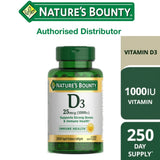D VITAMINS
Let's begin by explaining what we actually mean when we say Vitamin D.
Vitamin D is actually a group of steroid molecules which exists in two main forms. One is Vitamin D2; the other is Vitamin D3. There is also a synthetic version of Vitamin D but we won't be concerned with that here we're going to concentrate on the two natural forms. (When you see Vitamin D without the little 2 or 3 next to it, it refers to both, or either.)
Vitamin D2 is known as ergocalciferol and is derived from our diet, primarily from yeast. Ergocalciferol is fat-soluble and synthesized by plants. It helps us regulate our calcium and phosphorus metabolism. Ergocalciferol promotes healthy bones and teeth, and supports the immune system. Vitamin D2 is the form most often added to foods.
Vitamin D3 is called cholecalciferol and is found in animals. Cholecalciferol is generated when light energy is absorbed by a certain type of molecule. It is sometimes referred to as the sunlight vitamin because it is produced when the sun's ultraviolet B (UVB) rays strike the skin. Vitamin D3 supports the same biological functions as Vitamin D2.
Vitamin D is part vitamin, part hormone. Due to its sterol chemical structure, and since it's the only vitamin we produce in our bodies naturally, it is technically considered a hormone.
- Vitamin D absorption decreases as we age; therefore, older individuals may especially benefit from supplementation.
- A review study on the benefits of Vitamin D recommends increased use of Vitamin D supplements in the U.S. to help ensure adequate intake and optimal health/healthy cells/healthy cellular function.
- Vitamin D3 is the form naturally produced in the body from sunlight.
- Vitamin D assists in the absorption of calcium.
- Residents of northern climates with inadequate exposure to sunlight may not produce sufficient Vitamin D.
- If you use sunscreen products to protect the health of your skin, your body's natural production of Vitamin D will be reduced. Supplementing with Vitamin D is a smart choice when using sunscreen products.
- Up to 75 percent of teens and adults could use more Vitamin D.
- A recent scientific study showed that older adults who consumed 5000 IU of Vitamin D plus 320 mg of elemental calcium per day were able to maintain healthy bone density measures.
- According to the National Osteoporosis Foundation, intake of Vitamin D may need to be adjusted up to as much as 2,000 IU/ day for individuals who have bone concerns and individuals with limited sun exposure.
- Vitamin D plays a role in the maintenance of calcium and phosphorus levels in the blood.
- Vitamin D helps maintain healthy bones in adults.
- Vitamin D helps maintain strong bones and teeth by enhancing the absorption of calcium and phosphorus.
- Vitamin D helps maintain a healthy immune system.
- If you're not getting enough Vitamin D every day, you may not be able to adequately absorb calcium from the foods you eat and your body will have to take calcium from your bones.
Functions
Bone health: Adequate intake of Vitamin D is necessary for bone health. Insufficient sunlight and low levels of Vitamin D are associated with poor bone health, partly because the body cannot absorb calcium from food or supplements without adequate Vitamin D. As we age, bone health becomes more important as bone density may be affected.
Immune system: Vitamin D is essential for a healthy immune system. Vitamin D may assist the immune system by helping to regulate T- and B-lymphocytes, supporting the ability of macrophages to work within the body, and promoting the synthesis of mononuclear cells.
Neuromuscular function: Muscles have receptors for the uptake of Vitamin D. Low levels of Vitamin D may affect muscle function and balance.
Sources
Along with sunlight, the dietary sources of Vitamin D include:
|
|
|
|
|
|
|
|
|
|
|
|
|
|
The structure function claims made on this website have not been evaluated by the Food and Drug Administration. These dietary supplement products are not intended to diagnose, treat, cure, or prevent any disease.



